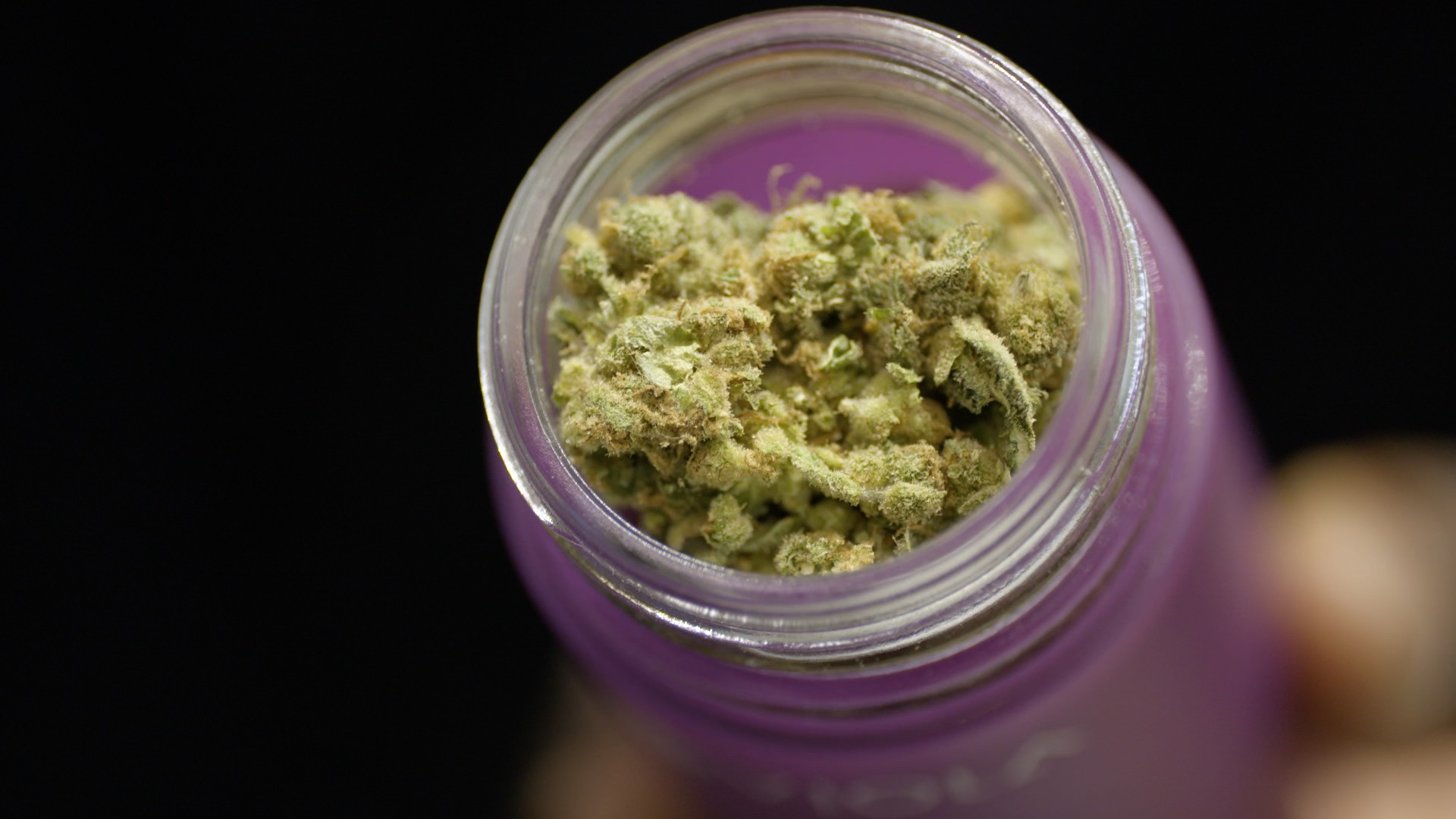Getty Images
Just like nearly everyone in Colorado with a chronic health condition, Barbara MacLean has used marijuana medicinally. MacLean, 56, who lives outside of Boulder, has Crohn’s and Lyme diseases. A digital film and special effects producer by trade, she says her most pressing problem is sore joints due to inflammation from Lyme. “It has caused me so much pain, I couldn’t walk,” MacLean says. Resultantly, she has high stress and anxiety.Cannabis bath bombs are okay. Vaping has little effect. Smoking offers relief from the gut pain of Crohn’s but does nothing for her joints. Because Crohn’s impedes on her digestive system, edibles don’t pass on much benefit.Colorado dispensaries have been flooded with new products and technologies since the state legalized in 2014, so much so that the choices can be “overwhelming,” MacLean says. Recently, she found success with a new topical, Evolve NanoSerum, a product of NanoSphere Health Sciences, which delivers microscopic particles of THC right into her bloodstream. It’s an amber-colored gel that comes in a pump dispenser and leaves no stickiness or color, “like a deodorant,” she says.“My husband puts it on my feet for me,” she says. “Application time is wonderful.” She feels pain disperse in 20 to 30 minutes. She uses it in the evening and morning, and as needed through the day. She also rubs it into her temples for stress relief and to help sleep. It calms her.Nanoparticles may be a more effective delivery system for cannabis. These are some of the tiniest biologically active components of a drug, usually isolated through processes like centrifuging. A human hair is 50 to 100 micrometers thick and one nanometer is one thousandth of a micrometer. Some are smaller than viruses. To use as medicine, they are often chemically bonded with a lipid carrier that would prevent them from dissolving in the skin or muscles and allow them to flow into the bloodstream.
More from VICE:
For cannabis, this could be a particularly effective delivery system than the ones that have been used in dorm rooms and concert parking lots since the ’60s. While time-tested, smoking and ingesting present challenges to dosing exactly and getting the most effect out of THC.When smoking marijuana, between 60 and 63 percent of THC can be lost through side smoke and through the respiratory mucous membranes, studies have found. Vaping has a THC loss rate of about 46 percent. Plus there’s the damage and irritation to the lungs. Edibles are notoriously unpredictable in terms of how they are synthesized by the liver. This can lead to a reaction that's undesirably delayed or strong or long-lasting. Nanoparticles, when mixed into a topical serum, allow the THC to enter right into the bloodstream. Dosing can be more predictable and conscious, manufacturers say.Nano tech sounds like something out of Star Trek or Marvel movies, but several bio tech companies and researchers have already pioneered nano-ized delivery systems for their drugs, says Richard Clark Kaufman, chief science officer for NanoSphere Health Sciences. These systems could break through the body’s natural nets and nullifiers for a more exact and less invasive application.“There’s a lot of drug delivery systems out there that have been put in research papers and never acted upon,” Kaufman says. Much of the research is focused on anti-cancer drugs and insulin, and potential commercial products utilizing them have been slowed by the Food and Drug Administration approval process, he says.NanoSphere, founded in 2013, tried to use the available nano technology to create lipids loaded with dietary supplements that customers could absorb through the skin. The company had the good fortune of a headquarters in Greenwood Village, Colorado, so when the state legalized, they were in a position to create the Evolve Formula for cannabis, which only needed to pass through a few state laws. (They’ve temporarily ceased production on the dietary supplements to focus on weed.) They introduced the product in 2016.Kaufman doesn’t describe his patented scientific process in detail for fear of frivolous patent lawsuits or copycats in a competitive industry, but he says they start with ethanol THC oil, and that the whole chemistry operation to mass produce the serum can fit on the top of a dining room table. “It’s like a Starbucks,” he says. “You can set it up anywhere.” The company hopes to introduce Evolve to California dispensaries in two months.Prices for Evolve range are about $5 for one five-milliliter bottle with 10 milligrams of THC and $30 for a 20 pack of five-milliliter/10-milligram-of-THC bottles. NanoSphere is preparing two additional delivery methods: an intra-nasal spray and a product that dissolves in the mouth.It soon will soon have competition on the nano-weed market. The Honest Marijuana Company, a grower specializing in organic cannabis based in rural Oak Creek, Colorado, has been working with a European company on a patent for a nanoparticle-based cannabis topical.Serge Chistov, a financial partner at Honest Marijuana, says their product will come from a process in which cannabinoid oil is dissolved in ethanol or alcohol to get the THC nanoparticle-sized and water-phobic, allowing it to pass through skin, fat, and muscle into the bloodstream. He says that, visually, the product will be milky-white and leave few traces once applied.In addition to more precise dosing, nanoparticle topicals will offer users a way to escape the traces of cannabis use, those sights and smells that—even in weed-friendly states—scream "pothead."“Everyone I know who uses this plant would be interested in a healthier, more discreet way of using,” Christov says, “than having green, sticky fingers and having it on your breath and your car smelling like cannabis.”Sign up for our newsletter to get the best of Tonic delivered to your inbox.
Advertisement
Advertisement
More from VICE:

For cannabis, this could be a particularly effective delivery system than the ones that have been used in dorm rooms and concert parking lots since the ’60s. While time-tested, smoking and ingesting present challenges to dosing exactly and getting the most effect out of THC.When smoking marijuana, between 60 and 63 percent of THC can be lost through side smoke and through the respiratory mucous membranes, studies have found. Vaping has a THC loss rate of about 46 percent. Plus there’s the damage and irritation to the lungs. Edibles are notoriously unpredictable in terms of how they are synthesized by the liver. This can lead to a reaction that's undesirably delayed or strong or long-lasting. Nanoparticles, when mixed into a topical serum, allow the THC to enter right into the bloodstream. Dosing can be more predictable and conscious, manufacturers say.Nano tech sounds like something out of Star Trek or Marvel movies, but several bio tech companies and researchers have already pioneered nano-ized delivery systems for their drugs, says Richard Clark Kaufman, chief science officer for NanoSphere Health Sciences. These systems could break through the body’s natural nets and nullifiers for a more exact and less invasive application.“There’s a lot of drug delivery systems out there that have been put in research papers and never acted upon,” Kaufman says. Much of the research is focused on anti-cancer drugs and insulin, and potential commercial products utilizing them have been slowed by the Food and Drug Administration approval process, he says.
Advertisement
